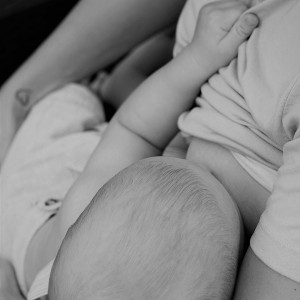Cancer risk factors associated with historical contraceptive use and breastfeeding duration

Accepted: 18 October 2023
HTML: 3
All claims expressed in this article are solely those of the authors and do not necessarily represent those of their affiliated organizations, or those of the publisher, the editors and the reviewers. Any product that may be evaluated in this article or claim that may be made by its manufacturer is not guaranteed or endorsed by the publisher.
Cancer is the second leading cause of death worldwide. Two prominent factors in this regard are a woman's history of contraceptive use and the duration of breastfeeding. This study aimed to delve into these risk factors and their impact on cancer incidence. The research employed a cross-sectional design involving 125 cancer patients undergoing chemotherapy at Abdul Wahab Sjahranie Hospital in Samarinda, East Kalimantan. This study used a total sampling approach to include all available patients. Data on contraceptive use, breastfeeding duration, and cancer status were collected through a questionnaire and subsequently analyzed using the chi-square test. The study revealed that breast cancer was the most prevalent type, affecting 41.6% of patients. Additionally, more than half of the respondents breastfed for less than two years (52%), while only 48% breastfed for two years or more. Notably, a significant majority (66.4%) had a history of using hormonal contraception. Statistical analysis demonstrated a compelling association between contraceptive history, breastfeeding duration, and cancer incidence (p < 0.001). In summary, the findings highlight a substantial relationship between a woman's history of contraceptive use, the duration of breastfeeding, and the incidence of breast cancer. These results underscore the importance of further research and the development of targeted interventions to better understand and mitigate breast cancer risk factors among women.
WHO. Cancer [Internet]. World Health Organization. 2018. Available from: https://www.who.int/news-room/fact-sheets/detail/cancer#:~:text=The problem-,Cancer is a leading cause of death worldwide%2C accounting for,lung (2.21 million cases)%3B
Sung H, Ferlay J, Siegel RL, et al. Global Cancer Statistics 2020: GLOBOCAN Estimates of Incidence and Mortality Worldwide for 36 Cancers in 185 Countries. CA Cancer J Clin 2021;71:209–49. DOI: https://doi.org/10.3322/caac.21660
WHO-IARC. Latest global cancer data: Cancer burden rises to 18.1 million new cases and 9.6 million cancer deaths in 2018. Press Release 2018;50:3–4.
Riskesdas. Badan Penelitian dan Pengembangan Kesehatan Kementerian RI Tahun 2018 [Indonesian Ministry of Health Research and Development Agency in 2018]. Badan Penelitian dan Pengembangan Kesehatan. 2018. p. 674. Available from: http://labdata.litbang.kemkes.go.id/images/download/laporan/RKD/2018/Laporan_Nasional_RKD2018_FINAL.pdf
Sagala ETA. Hubungan Lama Menyusui pada Multipara dengan Kejadian Kanker Payudara di RSUD Dokter Soedarso Pontianak [The Relationship Between Long-term Breastfeeding in Multiparous Women and the Incidence of Breast Cancer at RSUD Dokter Soedarso Pontianak]. J Mhs Fak Kedokt Untan 2014;1:8158.
Dewi GAT, Hendrati LY. Breast Cancer Risk Analysis by the Use of Hormonal Contraceptives and Age of Menarche. J Berk Epidemiol 2015;3:112–23. DOI: https://doi.org/10.20473/jbe.v3i1.2015.12-23
Sari N, Amran VYA. Hubungan Penggunaan Kontrasepsi Oral dengan Kanker Payudara Wanita Premenopause [The Relationship Between the Use of Oral Contraceptives and Breast Cancer in Premenopausal Women]. J Ilm Kesehat Sandi Husada 2019;8:132–7.
Nasution WM, Siregar FA, Asfriyanti. Pengaruh Pemakaian Kontrasepsi Hormonal dan Riwayat Keluarga Terhadap Kejadian Kanker Payudara di Rsud Dr . Pirngadi Medan Tahun 2017 [The Influence of Hormonal Contraceptive Use and Family History on the Incidence of Breast Cancer at Dr. Hospital. Pirnga. J Med Respati 2018;13:39–47.
Ardhanary, Bustan N, Gobel FA. Risk Factors of Breastfeeding History in the Faktor risiko riwayat menyusui pada kejadian kanker payudara di Rumah Sakit Ibnu Sina Makassar dan RSUD Makassar [Incidence of Breast Cancer at Ibnu Sina Hospital in Makassar and Regional General Hospital Makas. J Mitrasehat 2018;8:514–23. DOI: https://doi.org/10.51171/jms.v8i2.210
Bernier MO, Plu-Bureau G, Bossard N, et al. Breastfeeding and risk of breast cancer: A meta-analysis of published studies. Hum Reprod Update 2000;6:374–86. DOI: https://doi.org/10.1093/humupd/6.4.374
Lanfranchi A, Brind J. Breast cancer: risks and prevention. 4th ed. Breast Cancer Prevention Institute. 2007.
Tryggvadóttir L, Tulinius H, Eyfjord JE, Sigurvinsson T. Breastfeeding and reduced risk of breast cancer in an Icelandic Cohort study. Am J Epidemiol 2001;154:37–42. DOI: https://doi.org/10.1093/aje/154.1.37
Charlton BM, Wu K, Zhang X, et al. Oral contraceptive use and colorectal cancer in the nurses’ health study i and II. Cancer Epidemiol Biomarkers Prev 2015;24:1214–21. DOI: https://doi.org/10.1158/1055-9965.EPI-15-0172
Imelda F. Nifas Kontrasepsi Terkini Dan Keluarga Berencana [Latest Postpartum Contraception and Family Planning]. Yogyakarta: Gosyen Publishing; 2018.
Iversen L, Fielding S, Lidegaard Ø, Hannaford PC. Contemporary hormonal contraception and cervical cancer in women of reproductive age. Int J Cancer 2021;149:769–77. DOI: https://doi.org/10.1002/ijc.33585
Abdullah, Bawotong. Hubungan Pemakaian Kontrasepsi Hormonal dan Non Hormonal Dengan Kejadian Kanker Serviks di PROF. Dr. R.D. Kandao Manado [The Relationship Between Hormonal and Non-Hormonal Contraceptive Use and the Incidence of Cervical Cancer at PROF. Dr. R.D. Kandao Man. J Keperawatan UNSRAT 2013;1:105599.
Anstey EH, Shoemaker ML, Barrera CM, et al. Breastfeeding and Breast Cancer Risk Reduction: Implications for Black Mothers. Am J Prev Med 2017;53:S40–6. DOI: https://doi.org/10.1016/j.amepre.2017.04.024
Listyawati. Hubungan Riwayat Menyusui Dengan Kejadian Kanker Payudara Di Rumah Sakit Umum Daerah Muntilan [The Relationship Between Breastfeeding History and the Incidence of Breast Cancer at Muntilan Regional General Hospital] [Internet]. Sekolah Tinggi Ilmu Kesehatan ‘Aisyiyah Yogyakarta, Indonesia 2015;13. Available from: http://digilib.unisayogya.ac.id/1881/1/NASKAH PUBLIKASI LISTYAWATI 201410104121.pdf
González-Jiménez E. Breastfeeding and Reduced Risk of Breast Cancer in Women: A Review of Scientific Evidence. In: Barría RM, editor. Selected Topics in Breastfeeding. Intech Open; 2018. DOI: https://doi.org/10.5772/intechopen.72688
Fortner RT, Sisti J, Chai B, et al. Parity, breastfeeding, and breast cancer risk by hormone receptor status and molecular phenotype: Results from the Nurses’ Health Studies. Breast Cancer Res 2019;21. DOI: https://doi.org/10.1186/s13058-019-1119-y
Sly JR, Miller SJ, Thelemaque L, et al. Knowledge of the Relationship Between Breastfeeding and Breast Cancer Risk Among Racial and Ethnic Minority Women. J Cancer Educ 2020;35:1193–6. DOI: https://doi.org/10.1007/s13187-019-01580-9
Sari W, Indrawati, Harjanto BD. Panduan Lengkap Kesehatan Wanita [Comprehensive Women’s Health Guide]. Jakarta: Penebar Plus; 2012.
Copyright (c) 2023 the Author(s)

This work is licensed under a Creative Commons Attribution-NonCommercial 4.0 International License.


 https://doi.org/10.4081/hls.2023.11812
https://doi.org/10.4081/hls.2023.11812



